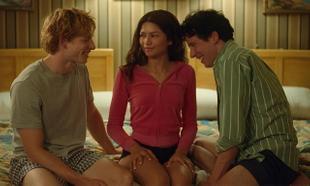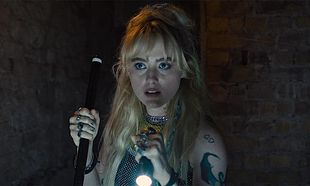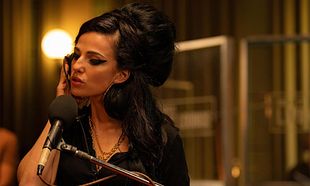Shamelessly aiming for an Oscar is nothing to be ashamed about but getting there by relying on cliché and syrupy sentimentality is another. Fathers and Daughters could have been a better film if it wasn’t so keen on pushing the most obvious of emotional buttons.
Set in 1989, Jake Davis (Crowe) is a Pulitzer Prize-winning author who blames himself for the death of his wife as he was driving when their car hit another. Five-year-old daughter Katie (Kylie Rogers) was unharmed but Jake suffers a breakdown and is advised to check himself into a retreat to address the mental issues behind his uncontrollable tremors. When he is discharged seven months later he finds that his wife’s bitter, well-to-do sister (Diane Kruger) and her smarmy rich husband (Greenwood) wish to adopt Katie. When Crowe refuses, he comes under mental strain to provide for Katie but his new book isn’t doing so well and those tremors return…
Running parallel to this is Katie twenty five years later. She (now played by Seyfried) is a budding child psychologist hoping to encourage her first patient, a mute Quevanzhané Wallis (Beasts of the Southern Wild, Annie), to speak. She keeps men at an emotional distance, preferring hasty trysts in public bathrooms with strangers over meaningful relationships, but then Cameron (Paul), a fan of her father’s writing, comes calling …
The 1989 story is a lot tidier than its 2014 counterpart. The former gets down to business straight away and keeps things simple; like in Pursuit of Happyness, Italian director Gabriel Muccino, puts financial strain and the bond it forms between parent and child front and centre. It’s hard not to be engaged with Crowe’s predicament and with little or no fat on the story, it’s by far the more engaging of the narratives. But the 2014 story is plump affair; roomier than the straight-as-a-die earlier story, there’s less to get involved with here. Brad Desch’s screenplay is too on the nose with Quevanzhané Wallis’s reluctance to speak about her traumas all too obviously mirroring Seyfried’s inability to address her own personal troubles.
It resorts to formula too often too: the writer falling asleep at the typewriter (ask any writer – they don’t do this); the Self-Destruct Girl has Unhappy Sex Scene; and, of course, the last minute dash across town before a declaration of love. The twin scenes of Crowe teaching Rogers, and later Seyfried teaching Wallis, are really awful, while Jane Fonda and Octavia Spencer, playing Crowe’s agent and Seyfried’s boss respectively, have little to do.
The Pursuit of Happyness and Seven Pounds showed that Muccino had a penchant for mushiness, mushiness that’s effective if rooted in honesty, but the calculated, tried-and-tested scenarios here makes Fathers and Daughters a by-the-numbers affair.










































































